Now, nearly two years later, we see the tragic effects of this triple-threat of COVID-19, worsened mental health and increased drug misuse. Drug overdoses took the lives of an estimated 100,000 individuals between April 2020 and 2021, an unprecedented annual high, devastating families and communities across the country.[ii]
Is further worsening of the overdose crisis preventable? The answer is yes, but only if physicians can optimize the tools needed to address the issue. One of these tools is clinical drug testing.
By combining an analysis of nearly 5 million de-identified aggregated test results with a survey from the Harris Poll of more than 500 primary care physicians, a new Health Trends® report from Quest Diagnostics uncovered novel insights into the concerns physicians felt about their patients’ potential drug misuse during the pandemic – and the value physicians place on testing to reduce risk.
Two thirds of physicians surveyed (67%) shared a worry that signs of drug misuse and substance use disorders among one or more of their patients were missed during the pandemic – a troubling statistic, when combined with the 94% of physicians who reported seeing more patients experiencing stress, anxiety or other mental health issues (which have been shown to raise risk of drug misuse and use disorders[iii]) because of COVID-19.[iv]
Despite this, 88% of physicians report feeling confident they can identify patients at risk for drug misuse. Yet nearly half of patients tested by Quest show signs of misuse, and half of those patients show signs of drug combining.
Clearly, physicians are concerned about their patients prescribed controlled medications, but are also overly confident in their ability to identify at-risk patients. As most physicians (85%) believe testing gives confidence they are prescribing safely, clinical drug testing can link these dynamics, providing insights to uncover problematic drug use the provider may miss before the worst outcomes can occur. Now that stay-at-home orders appear to be easing, organizations that recommended postponing nonessential medical care (including drug testing) should remind clinicians of the utility of drug testing.
In Quest’s November report, physicians expressed concerns about telehealth while worrying they have missed signs of drug misuse during the pandemic. A majority (75%) of those surveyed believe telehealth visits limit the ability to determine whether patients are at risk for or are already misusing prescription drugs. More startlingly, while nearly all (91%) physicians feel confident they can recognize the signs of prescription drug misuse during in-office interactions, only half (50%) report the same confidence via telehealth visits.
Telehealth can be used to help treat and monitor patients who are misusing prescription drugs, however, physicians need help to understand how to use virtual care in this capacity. Research suggests telehealth is emerging as a complement to, versus a replacement for, in-person care, and flexible care models should aim to maximize the value of both.
It is critical that patients return to in-person care before conditions worsen. According to an additional Quest Health Trends report from December 2020, the majority of U.S. adults (60%) skipped or delayed some in-person medical treatments or appointments during the COVID-19 pandemic.[v]
We are at a precarious time, and stand in the crossroads of utilizing clinical care to help prevent unfortunate outcomes. Eighty percent of physicians surveyed cited worry that some patients at high risk for drug misuse or use disorders stopped seeing their doctor during the pandemic and, potentially, permanently. In fact, the same 80% of physicians believe that the lack of drug testing during the pandemic put more people at risk for undetected drug misuse or use disorders.
Testing is one of the most vital tools physicians possess to uncover behavioral insights regarding substance misuse. The pandemic has not only worsened the drug crisis, but it has also reduced access to important clinical care. Encouraging patients to return to their physicians, so they can receive critical preventative care like prescription drug monitoring, is vital to curbing the climbing number of overdose deaths, and for our nation’s pandemic recovery. These patients need support, and testing can help provide it – before it’s too late.
________________________________________
For more information, visit www.WhyClinicalDrugTesting.com. To access the Quest Diagnostics Health Trends report, visit Quest Diagnostics Newsroom - Health Trends®.
References
[i] Niles, J. K., Gudin, J., Radcliff, J., & Kaufman, H. W. (2021). The Opioid Epidemic Within the COVID-19 Pandemic: Drug Testing in 2020. Population Health Management, 24(S1), S-43. https://doi.org/10.1089/pop.2020.0230
[ii]Overdose Deaths Reached Record High as the Pandemic Spread - The New York Times (nytimes.com)
[iii]Key Substance Use and Mental Health Indicators in the United States: Results from the 2018 National Survey on Drug Use and Health (samhsa.gov)
[iv]Majority of Physicians Worry Signs of Addiction Were Missed During Pandemic, Finds New Quest Diagnostics Health Trends® Report - Nov 15, 2021
[v]New Quest Diagnostics Health Trends™ Survey Reveals COVID-19 Testing Hesitancy Among Americans, With 3 of 4 Avoiding a Test When They Believed They Needed One - Dec 9, 2020
15% Off Medical Practice Supplies
VIEW ALL
 Manual Prescription Pad (Large - Yellow)
Manual Prescription Pad (Large - Yellow) Manual Prescription Pad (Large - Pink)
Manual Prescription Pad (Large - Pink) Manual Prescription Pads (Bright Orange)
Manual Prescription Pads (Bright Orange) Manual Prescription Pads (Light Pink)
Manual Prescription Pads (Light Pink) Manual Prescription Pads (Light Yellow)
Manual Prescription Pads (Light Yellow) Manual Prescription Pad (Large - Blue)
Manual Prescription Pad (Large - Blue)__________________________________________________
Appointment Reminder Cards
$44.05
15% Off
$56.30
15% Off
$44.05
15% Off
$44.05
15% Off
$56.30
15% Off

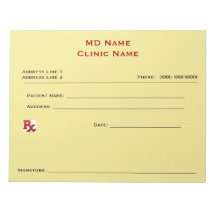
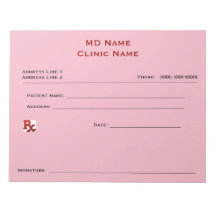
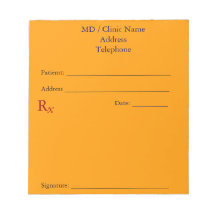
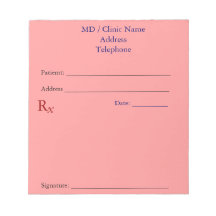
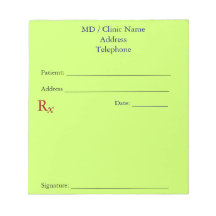
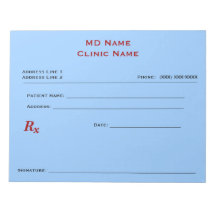
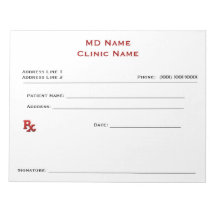
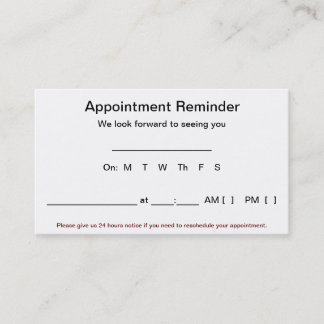
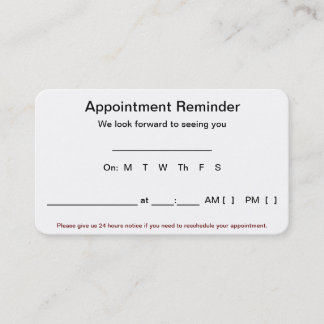



No comments:
Post a Comment